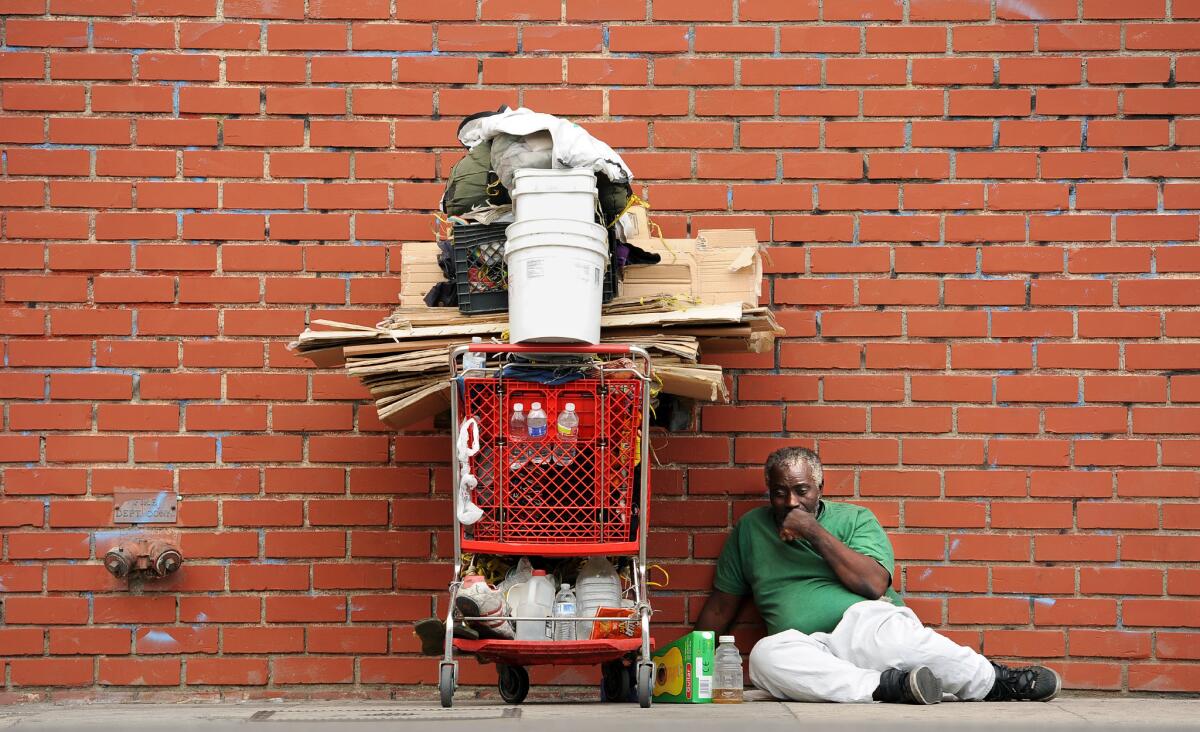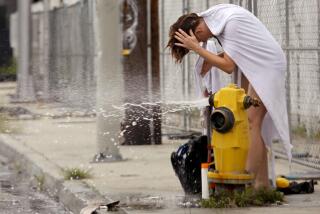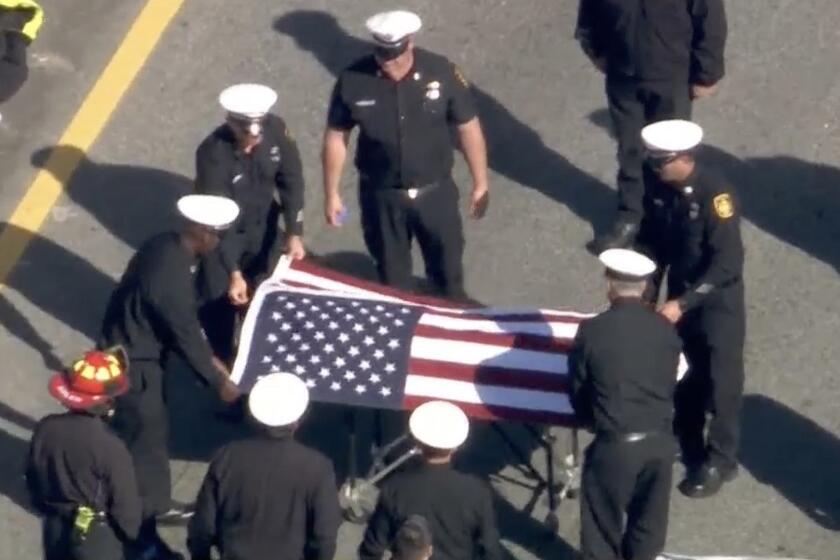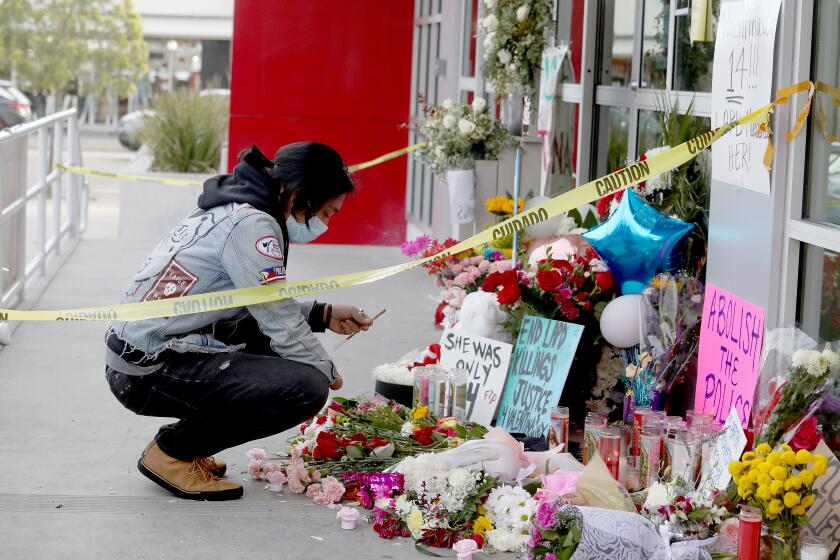$213 million earmarked to track L.A. homeless by computer, house 1,400

A coalition of public and private agencies announced Tuesday that it is funneling $213 million to house 1,400 homeless people and to expand a tracking and placement system it hopes will end chronic and veteran homelessness in Los Angeles County over the next two years.
The placement tool, called the coordinated entry system, is designed to replace a confusing patchwork of entry points to homeless housing and services with a single computerized portal that reaches every corner of the county.
“In the past it was survival of the fittest: the person who could stand in line the longest, or push to the front, literally or figuratively would win,” Christine Marge, director of United Way’s Home for Good project, said in a phone interview. “This will ensure we care for the most vulnerable in a way that uses the resources the most strategically.”
The Funders Collaborative, which includes the U.S. Department of Veterans Affairs, the city of Los Angeles Housing Authority, Los Angeles County Health Services and Mental Health, and the Conrad N. Hilton and Weingart foundations, is a project of Home for Good.
The United Way initiative has pledged to end veteran homelessness by the end of next year and chronic homelessness in 2016. Marge said the group, now in the third year of its five-year plan, is on track to meet its goals.
The system, which was first tried in 2013 on skid row, was designed to identify the most vulnerable homeless people and get them off the streets. Long-term or chronically homeless people, who are often jailed or hospitalized, are a quarter of the homeless population but consume 75% of the county’s resources, Marge said.
But the system, which has been described as match.com for homeless people, is also supposed to get families and others who fall into homelessness back in housing quickly, she added.
The $213 million, up from $105 million the collaborative directed in 2012, and $120 million last year, was boosted by the participation of Veterans Affairs, which in the past did not coordinate with the Funders Collaborative, Marge said.
The 1,400 units of permanent supportive housing will include medical and psychiatric services for residents for 15 years.
“The core premise of Home for Good is that by developing accurate, timely data about who and where the homeless are ... we can eliminate chronic and veteran homelessness and save millions in doing so,’ Marge said in a written statement.
Follow @geholland for homelessness and poverty news, and the latest on skid row.
More to Read
Start your day right
Sign up for Essential California for news, features and recommendations from the L.A. Times and beyond in your inbox six days a week.
You may occasionally receive promotional content from the Los Angeles Times.







